'Our workforce is weary': Advocates ask state to fund raises for direct support workers

Advocates, including some in Portage County, are asking Ohio's legislators for pay raises for people who care for some of the state's most vulnerable citizens.
Michelle Madden, CEO of Independence of Portage County, testified before two committees in the Ohio House of Representatives for House Bill 33. The bill would provide an increase in state funding to boost the average salary of direct support professionals from $16.50 per hour to $20.64.
More: Full Testimony, House Finance Committee
The Ohio General Assembly is hosting budget hearings in preparation for the two-year state budget, which will be approved in July. Madden, along with Cora Denning, an human resources generalist at Independence, offered testimony before the House Finance Subcommittee in March. Madden then returned to testify before the House Finance Committee.
Madden told legislators that low pay has left many positions unfilled at her agency. A total of 157 people were offered jobs last year, but only 48 have accepted jobs and 27 of them are still employed. Short staffing has forced supervisors, office staff, management and the executive team all to fill in to provide basic coverage, in addition to other duties.
Independence provides residential and support services to more than 100 individuals with developmental disabilities.
"Our workforce is weary, and I am concerned for their wellbeing and mental health," Madden said.
More: House Finance Subcommittee
'I couldn't imagine doing anything else'
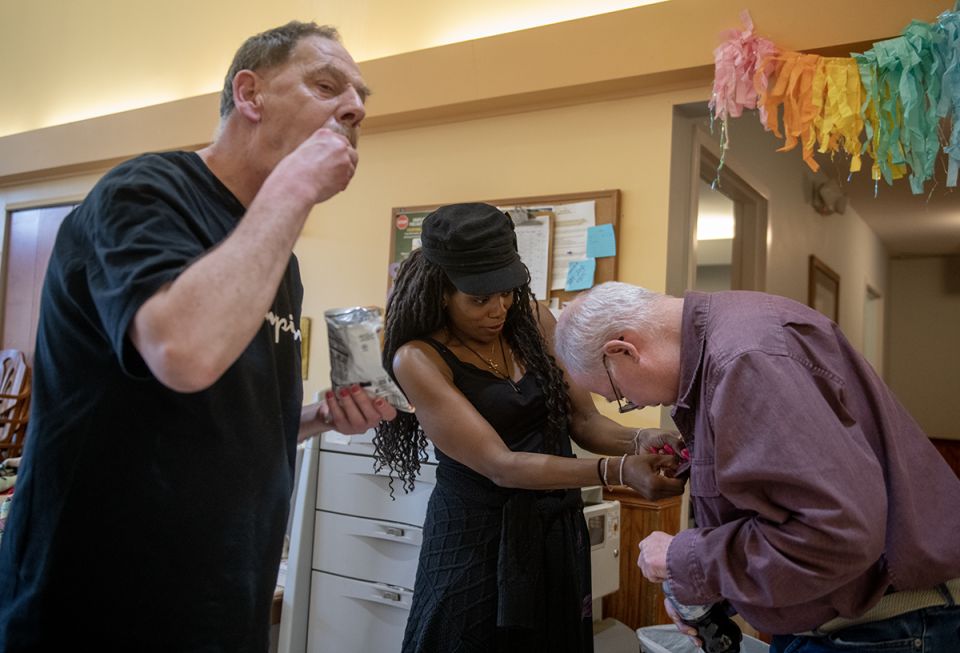
Jameca England and Corey Austin work at a group home in Ravenna, where they care for nine adults ranging in age from 48 to 84 with developmental disabilities. Many of the adults who live in the home also have physical disabilities and some are non-verbal.
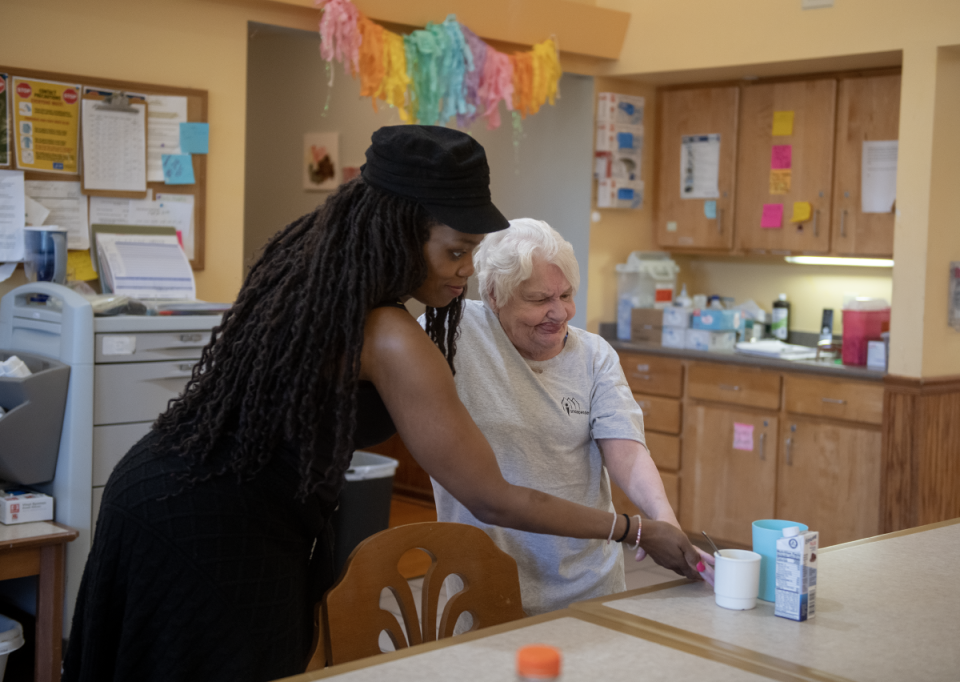
England, Austin and other staff members are responsible for helping the residents with various daily tasks, such as meals, laundry, bathing and going to the bathroom. The direct support staff also are responsible for things like laundry, cooking, administering medication and keeping track of medical appointments.
The residents leave daily to go to a day program that Independence operates.
Although both work longer hours than they'd like, England and Austin say they like their jobs.
"I love my job," England said. "I couldn't imagine doing anything else."
England started out as a state-tested nursing assistant and was a pre-med student but dropped out to start a family. She's now raising seven children in addition to her "other family" of residents that she thinks of as grandparents.
She recently accepted a promotion and will be stepping into a supervisory position. The new job will mean a higher salary — but also more hours that she won't be able to turn down.
She already frequently works double shifts, coming in early in the morning and returning in the afternoon to work through the evening.
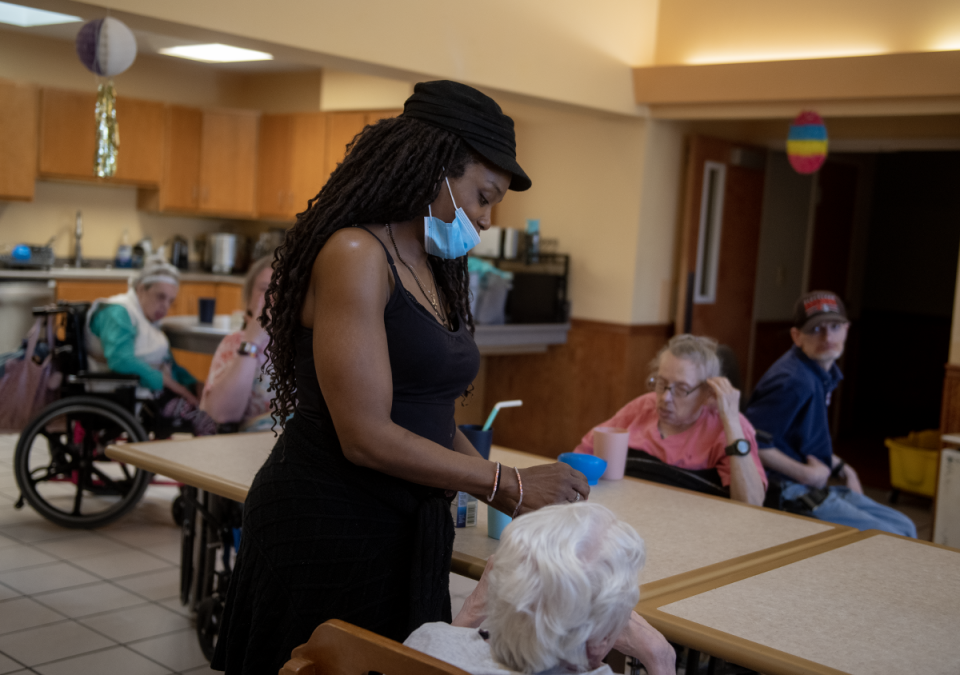
"You have to love it to do this kind of work," she said. "It's very rewarding to be able to help someone else."
Austin said his girlfriend encouraged him to become a direct support professinal, and he enjoys the job because he connects with people. He cut his hours because of life commitments, but is still frequently asked to pick up extra shifts.
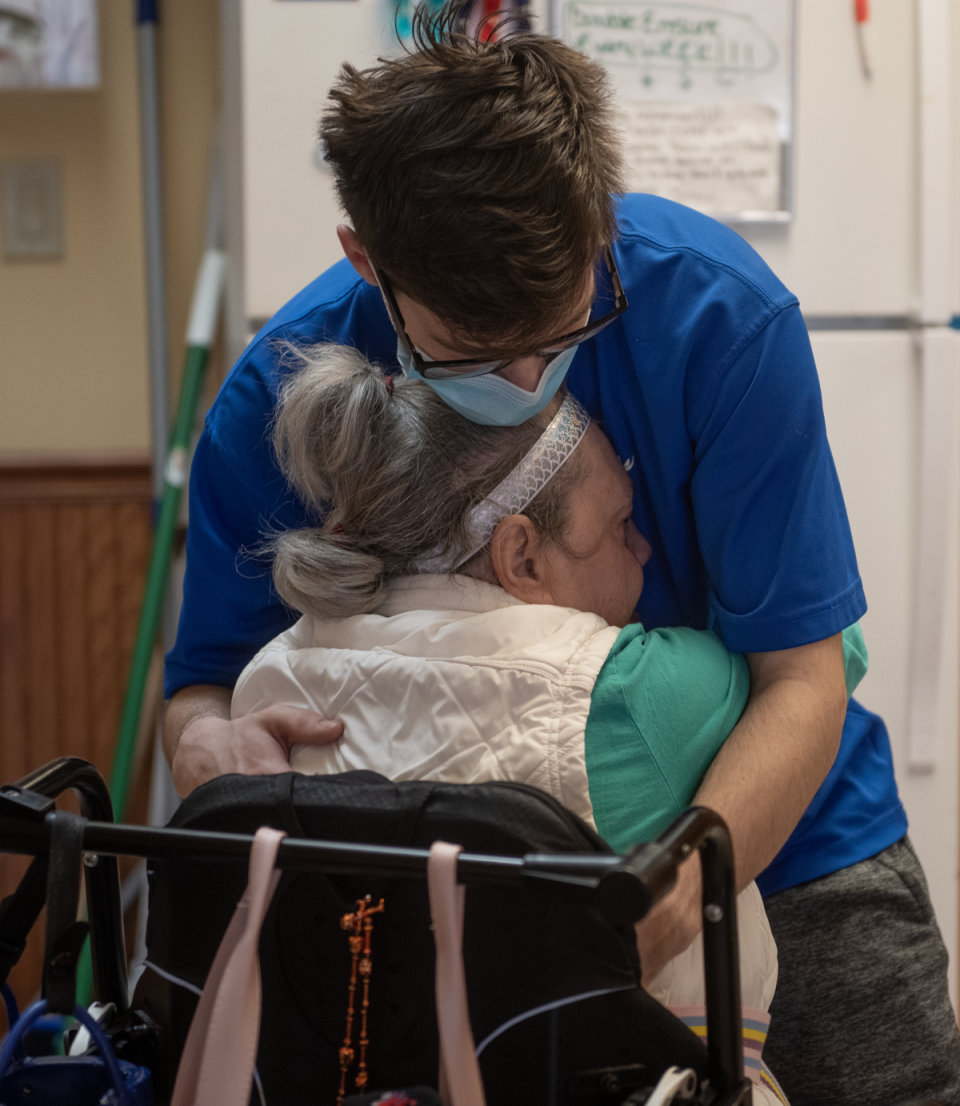
He said he encourages his friends to apply for vacancies in the field.
"If I can get people into this field, that's what I'm going to do," he said.

Direct support professional role is 'an underappreciated lifestyle'
Denning has worked for Independence for 13 years, half of them as a direct support professional. She testified that Ohio has more than 2.3 million adults with disabilities, and an increasing number of people are being diagnosed with autism spectrum disorder, fetal alcohol syndrome and Down Syndrome.
"A direct support professional is an underappreciated lifestyle," she said. "This profession asks that young adults, mothers, fathers and grandparents put their lives on the line to ensure that someone else's child, brother, sister is being taken care of." They are exposed to daily hazards, including bloodborne pathogens and physical aggression, and the vacancy rate in the field increases annually.
As a result, Madden told the finance committee that many staff at Independence, including herself, work extra hours to ensure basic coverage. There is a 40% vacancy rate in direct support professional and frontline supervisor roles, and at least 35% of them are on some form of public assistance, she said.
"We call them direct support professionals, but how many professionals do you know that make under the poverty level?" she asked.

State Rep. Gail Pavliga thanked Madden for her testimony, saying she has seen her work a full shift as executive director, then work a shift providing care when somebody called off.
"I am truly amazed by the work that you do, and that you've never asked anybody to do anything that you won't do yourself," she said.
She asked if salary alone kept people away from the jobs she is offering.
Madden said when she first came to Independence in 2005, she worried that she wouldn't be able to get people to accept jobs for the wages she was offering, which now average $14 per hour. The agency offers other benefits, including a career path, but "at $14 an hour, we cannot compete with the Amazons, the fast foods of the world," she said.
"There are people who are called to this field, but they cannot support their families," she said.
There are opportunities to bring workers into the field, but some have been shelved because of the pandemic, and executives don't have the time to invest in others The agency doesn't qualify for a program through Job and Family Services to recruit workers because the starting salary is too low.
State Rep. Dontavius Jarrells of Columbus asked if executives get paid time and a half for overtime, and Madden said they don't.
"Don't feel sorry for us," she said. "We get to do great work every day."
What happens next?
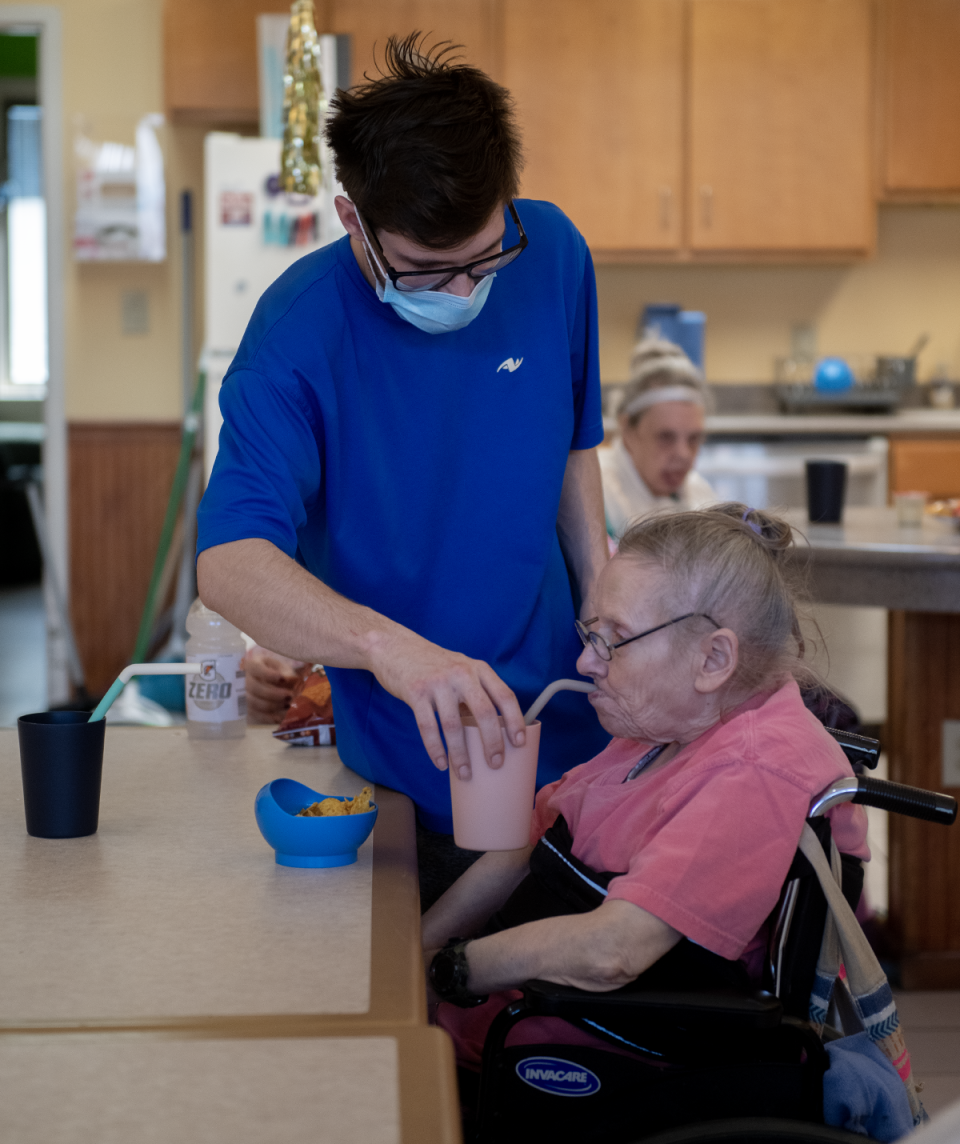
Now that testimony has taken place before the house finance committee, there are a variety of steps that will need to be taken between now and July, when the budget bill becomes law.
Once the bill is voted out of committee, it will go to the house floor for a vote, and then head to the state senate, which has its own committee process. Once the senate votes on its version of the bill, the budget heads to conference committee, which meets to resolve any difference and send the bill to Gov. Mike DeWine for his signature.
Madden said Independence operates six integrated care facilities in Portage County. One home had to be "taken off line" because of insufficient staffing, with two residents moved to other homes.
Because the agency relies heavily on state funding, Madden said she and heads of other agencies have been testifying in Columbus and have been in touch with their legislators.
"We've been really trying to pound the pavement in support of House Bill 33," she said.
Reporter Diane Smith can be reached at 330-298-1139 or dsmith@recordpub.com.
This article originally appeared on Record-Courier: Advocates push Ohio to boost pay for direct support workers

